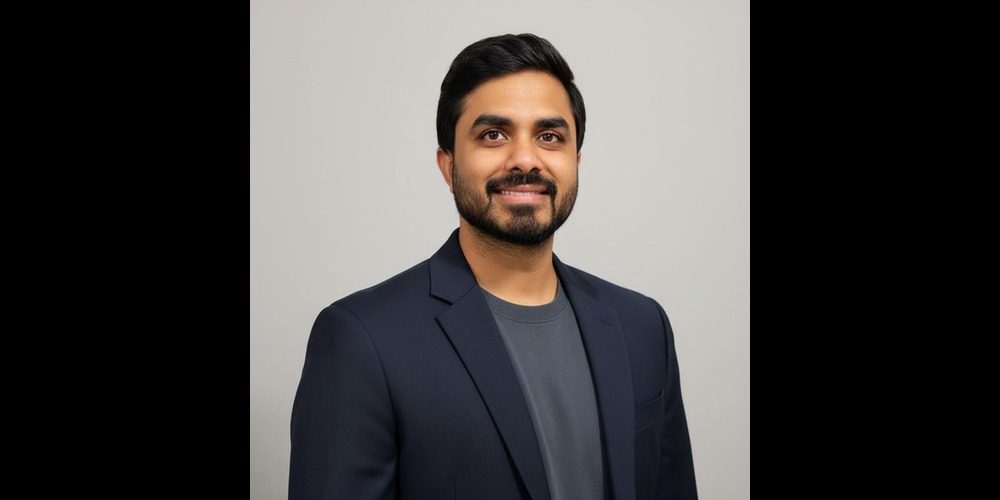How a Novel Framework is Revolutionizing Internal Developer Platforms and Solving the $2.8B Enterprise Skills Gap
Editor’s Analysis | May 2025
Enterprise software development stands at an inflection point. While the DevOps revolution of the 2010s delivered 3-5x productivity improvements, a new paradigm is emerging that promises 15-25x gains through what I’ve termed the “shift down” methodology—a fundamental reimagining of how enterprises approach platform engineering and developer experience optimization.
As one of the first practitioners globally to implement the emerging “shift down” methodology at Fortune 500 scale, specializing in AI-powered data platforms and cloud solutions, Kalyan Tilak’s work has systematized this approach through both enterprise implementations and Hypha’s educational platform, addressing a critical market failure: the $2.8 billion skills gap between traditional development practices and the platform engineering expertise that modern enterprises desperately need.
The Innovation: “Shift Down” vs. Traditional “Shift Left”
Traditional DevOps emphasized “shift left”—moving testing and security earlier in the development cycle. While valuable, this approach inadvertently increased cognitive load on developers by requiring them to master an expanding array of operational concerns alongside their core product responsibilities.
The “shift down” methodology—which Kalyan was among the first to implement at enterprise scale—represents a paradigmatic evolution: systematically moving operational complexity from distributed development teams to specialized platform teams, while creating Internal Developer Platforms (IDPs) that provide self-service capabilities without sacrificing security or compliance.
Key Implementation Principles from Early Enterprise Adoption:
- Cognitive Load Redistribution: Rather than adding responsibilities to development teams, strategic abstraction through platform layers
- Multiplicative Productivity: One platform team enables 10-15 product teams through reusable, standardized modules
- Experience-Driven Architecture: Developer experience becomes a measurable business metric, not an afterthought
- Golden Path Methodology: Opinionated workflows that guide without constraining, based on enterprise-proven patterns developed through real-world implementation
This approach transforms the traditional model where 20-30 development teams each spend weeks implementing nearly identical deployment workflows into hours of configuration using centralized, battle-tested templates.
Scaling Impact: Hundreds of Architects Transforming Fortune 1000 Companies
Kalyan’s early-stage implementation of this methodology at Philips Healthcare, supporting AI-powered data infrastructure for 8+ million patient records annually, demonstrated results that helped validate the approach for data-intensive platforms. Today, hundreds of architects trained through Hypha’s programs are leveraging this framework to transform Fortune 1000 companies across both specialized AI/data domains and general IT infrastructure.
Developer Transformation Metrics
- Onboarding Acceleration: Traditional 2-3 week ramp reduced to 4-6 hours through automated provisioning
- Operational Overhead Reduction: Developer time on infrastructure tasks dropped from 60-65% to 25%
- Feature Delivery Capacity: 40% increase without additional hiring through productivity optimization
- Engineering Retention: 25% improvement in retention rates due to enhanced job satisfaction
Business Continuity Results
- Deployment Frequency: Weekly releases evolved to daily deployments with 45% faster feature delivery
- System Reliability: Deployment failure rates decreased from 15% to under 2% through standardized environments
- Incident Response: Mean time to recovery improved from 4-6 hours to 20-30 minutes
- Production Stability: 85% reduction in production incidents through automated detection and centralized observability
These outcomes represent a new performance ceiling for enterprise software delivery—achievements that were considered impossible under traditional DevOps approaches.
Economic Framework: The Platform Engineering ROI Model
Through analysis of multiple enterprise implementations as one of the early adopters of “shift down” methodology, Kalyan has developed a quantitative framework for platform engineering investment that challenges conventional thinking about developer productivity economics.
Investment Threshold Analysis:
- Break-even point: 60+ engineering team size
- Typical implementation: 3-4 senior platform engineers ($650K annual investment)
- ROI timeline: Positive returns within 18 months for 100+ developer organizations
- Sustained savings: $1.5-2.3 million annually at scale
Commercial vs. Internal Development: Kalyan’s research demonstrates that internal platform development delivers 3.2x superior outcomes compared to external solutions, primarily due to organization-specific optimization capabilities and continuous improvement cycles that commercial products cannot match.
The most effective approach combines internal platform capability development with selective commercial tool integration—a hybrid methodology that maximizes flexibility while leveraging proven technologies for non-differentiating capabilities.
Industry Transformation: Addressing the Skills Gap Crisis
The platform engineering discipline suffers from a critical talent shortage. Gartner forecasts that 75% of Fortune 1000 companies will establish formal infrastructure platform teams by 2027, yet current educational approaches fail to bridge the gap between traditional development skills and platform engineering expertise.
The Hypha Solution: Recognizing this market failure, Kalyan founded Hypha to systematically transform experienced engineers into platform engineering leaders through a structured 7-step methodology:
- Architectural Foundation: Level 100-400 core competency development
- Platform Patterns: Hands-on implementation of “shift down” principles
- Enterprise Integration: Real-world deployment pipeline and security automation
- Scaling Methodologies: Multi-team coordination and standardization approaches
- Observability Mastery: Centralized monitoring and incident response systems
- Business Alignment: ROI measurement and executive communication frameworks
- Leadership Development: Technical mentorship and team scaling strategies
Demonstrated Program Outcomes:
1. Hundreds of careers transformed to architecture and design focus roles
2. Program graduates actively transforming technology roadmaps at Fortune 1000 companies
3. Established recruiting relationships with Fortune 500 organizations
Strategic Market Positioning: Competitive Advantage Through Timing
Recent Google Cloud research validates the competitive impact of platform engineering maturity: 71% of leading adopters significantly accelerated time-to-market compared to just 28% of less mature organizations. With only 27% achieving full platform maturity, early movers allocate 47% more developer time to innovation.
Critical Success Factors:
- Implementation Timing: Organizations adopting platform engineering in early 2025 create 18-month competitive moats
- Talent Acquisition: Early adoption provides advantages in attracting platform engineering expertise
- AI/ML Infrastructure Readiness: Platform engineering frameworks specifically designed for AI-powered data platforms, enabling organizational capabilities required for intelligent systems deployment and MLOps workflows
- Domain-Agnostic Scaling: Extension of specialized AI/data platform frameworks to general IT infrastructure, proving methodology versatility across diverse enterprise environments
- Learning Advantages: Iterative improvement cycles compound competitive benefits over time
The strategic imperative for enterprise leaders is clear: the question isn’t whether to implement platform engineering, but how quickly they can achieve transformation while maintaining operational stability.
Future Outlook: Platform Engineering as Enterprise DNA
Platform engineering represents more than operational optimization—it’s becoming fundamental enterprise DNA for organizations competing in AI-native markets. The specialized frameworks Kalyan has developed for AI-powered data platforms at Philips, now extended to general enterprise IT through Hypha’s educational programs, address the most critical constraint limiting enterprise software delivery capability: the shortage of qualified platform engineering leaders with expertise spanning both AI/data infrastructure and traditional cloud platforms.
As artificial intelligence reshapes software development workflows, enterprises with mature platform engineering capabilities will capture disproportionate advantages through superior developer velocity, system reliability, and innovation capacity. The organizations that move decisively on platform engineering implementation and talent development will establish lasting competitive advantages in the software-driven economy.
The transformation opportunity is unprecedented, but the window for competitive advantage is finite. Enterprise leaders who recognize platform engineering as a strategic imperative—not merely an operational improvement—will position their organizations for sustained success in an increasingly platform-native business environment.
About the Founder: Kalyan Tilak is the founder of Hypha (https://www.join-hypha.com/), which addresses the critical enterprise skills gap by transforming software engineers into platform engineering and architecture leaders through innovative educational methodologies. As Principal Cloud Architect at Philips Healthcare, he was among the first practitioners globally to implement the “shift down” approach to platform engineering at Fortune 500 scale, supporting infrastructure for millions of patients while achieving significant developer productivity improvements. His early adoption and systematic implementation of these methodologies has informed broader industry practices and bridges the gap between traditional development approaches and the platform engineering expertise that modern enterprises require for competitive advantage.
Connect with Kalyan on LinkedIn: Kalyan Tilak
Read More From Techbullion

































